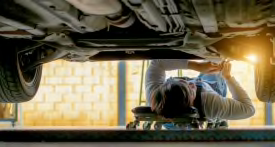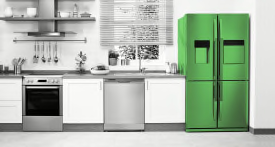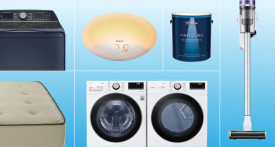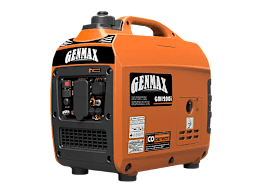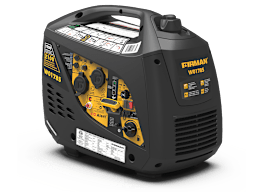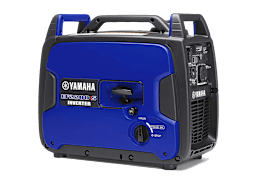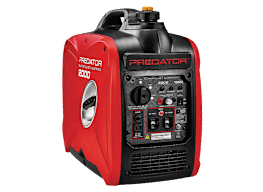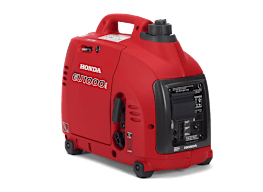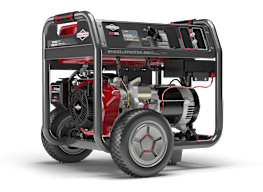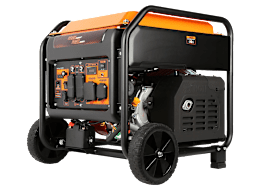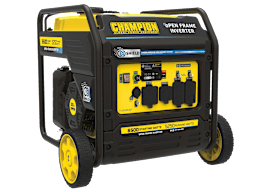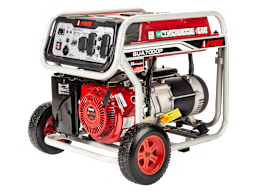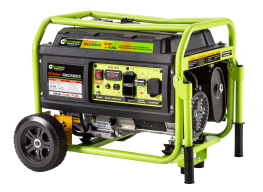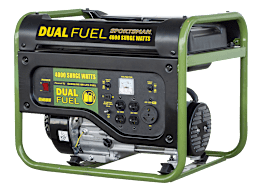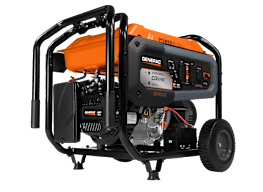Best and Worst Inverter Generators From Consumer Reports' Tests
These machines are pricier than more common portable generators. But they run longer and quieter, and use less energy.
When you shop through retailer links on our site, we may earn affiliate commissions. 100% of the fees we collect are used to support our nonprofit mission. Learn more.
Inverter generators are a relatively new, and improved, type of portable generator. You use both types of generator the same way—to power appliances and electronics after an outage at home or when you’re far from an electrical source. But as a group, inverter generators do better than regular portable generators in almost every way.
They run longer and use less energy. They also run more quietly, whether you’re using one at home or at a tailgate party. And they typically cost more, though the extra expense may be worth it.
“If money isn’t an issue, I would choose an inverter over a portable,” says Misha Kollontai, the Consumer Reports engineer who tests generators.
How CR Tests Generators
To test generators for performance, our engineers load up each model with key appliances you might want to power during an outage, such as a space heater, refrigerator, and window air conditioner. We make sure the generator can handle the load it’s supposed to, and also look at what happens when a sudden electrical spike hits—for example, if your refrigerator compressor kicks on when the generator is already close to its limit. The best models take that in stride, while others bog down or even stall. We look at how easy each generator is to move and use, as well as how efficiently it uses gasoline and how long it runs on a single tank.
We also developed a CO safety technology test to evaluate new automatic shutoff features on portable and inverter generators and low-CO engines.
Our ratings of dozens of models include the brands you’ll see whether you’re shopping online, or buying at home centers or dealers: Briggs & Stratton, Generac, Honda, Predator, and Ryobi. In addition to inverters, you’ll also find traditional gasoline-powered portable generators and home standby generators. Prices for generators in our ratings range from about $350 for a modest generator that can power a few key appliances, to more than $4,000 for home standby models that can handle everything in your house.
CR members can read on for ratings and reviews of top-rated inverter generators, one from each of the four size categories, followed by two large inverter models to skip. CR members can also dive into our complete generator ratings for even more options. And read our generator buying guide for shopping tips.
As always—and regardless of whether or not you buy a generator with a CO safety shutoff—use a gasoline generator only outdoors, at least 20 feet from your house, with the exhaust directed away from any windows or doors.
Best Inverter Generators in CR's Tests
Each of these highly rated inverter generators has CO safety technology designed to stop the engine if carbon monoxide reaches certain limits in an enclosed space, a feature CR considers very important. Each earns Very Good or Excellent ratings in tests of that function.
Best Large Inverter Generator
Produces 5,000 watts or more (220-volt-capable)
Best Midsized Inverter Generator
Produces 2,500 to 5,000 watts
Best Small Inverter Generator
Produces 1,500 to 2,500 watts
Best Mini Inverter Generator
Produces less than 1,500 watts
Worst Inverter Generators in CR's Tests
These 5,000-watt units, though less costly than some other large inverter generators, failed to reliably produce the amount of power promised by their manufacturer. You’ll have to spend thousands more to get a top-notch large inverter model that reliably produces the claimed wattage.
Generator Tips
Damaging storms can happen anytime. On the “Consumer 101” TV show, host Jack Rico learns from Consumer Reports expert Paul Hope how to avoid being left in the dark during a power outage.


